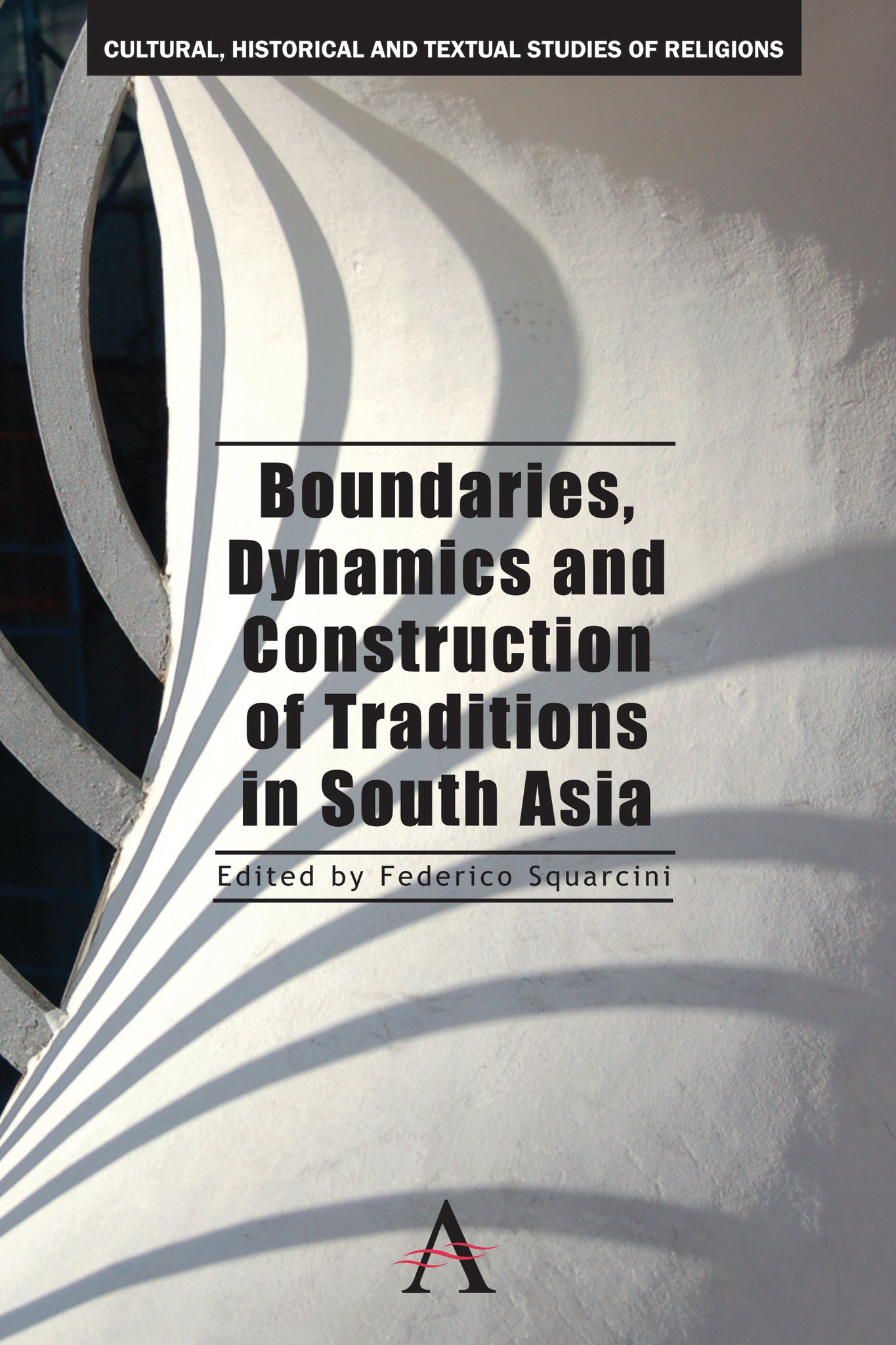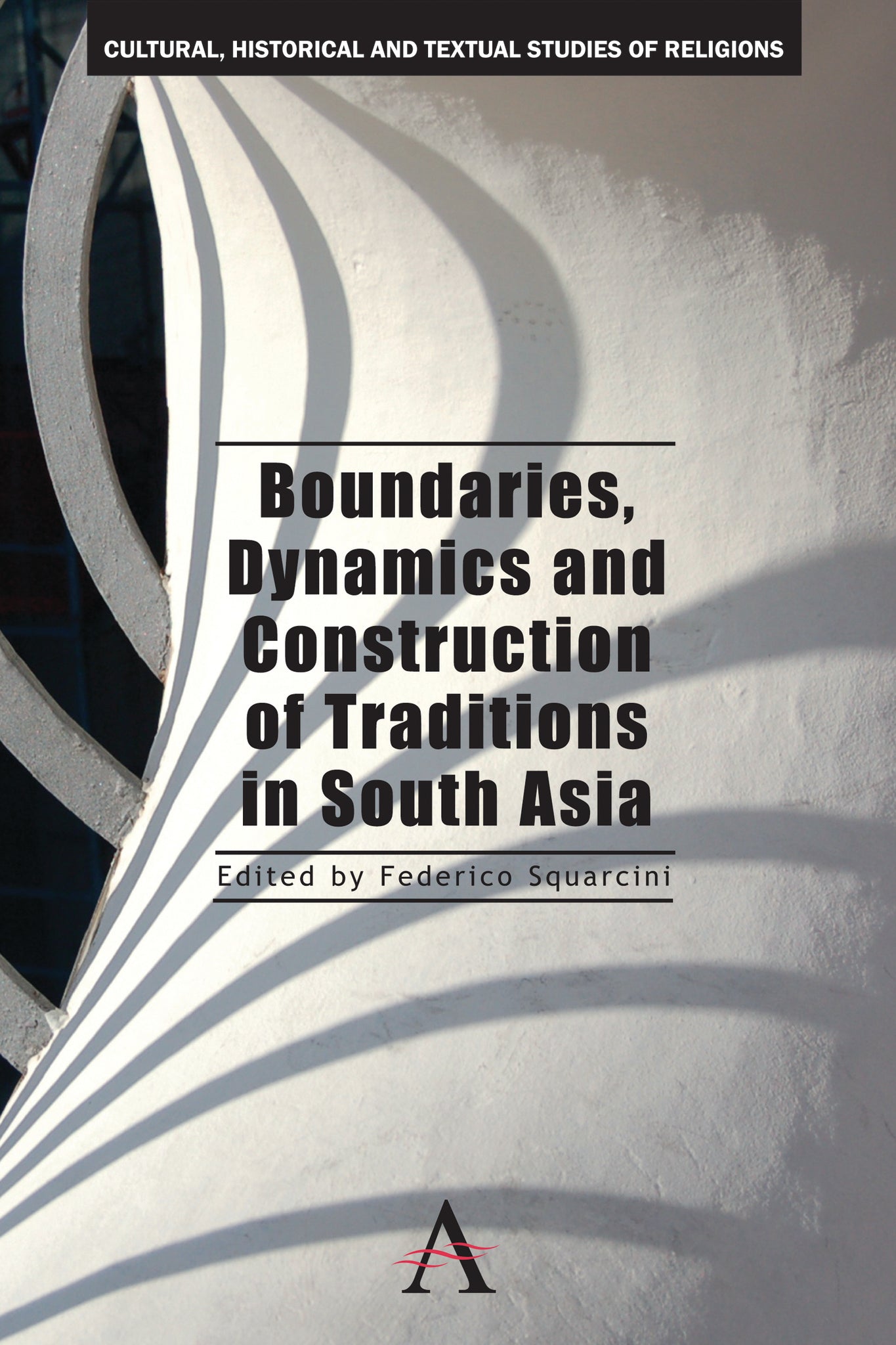We're sorry. An error has occurred
Please cancel or retry.
Boundaries, Dynamics and Construction of Traditions in South Asia

Some error occured while loading the Quick View. Please close the Quick View and try reloading the page.
Couldn't load pickup availability
- Format:
-
15 December 2011

‘Boundaries, Dynamics and Construction of Traditions in South Asia’ explores the dynamic constructions and applications of the concept of ‘tradition’ that occurred within the South Asian context during the ancient and pre-colonial periods. This collection of essays features a significant selection of the specialized fields of knowledge that have shaped classical South Asian intellectual history, and the aim of this volume is to offer a stimulating anthology of papers on the different and complex processes employed during the ‘invention’, construction, preservation and renewal of a given tradition.

RELIGION / Hinduism / General, Hinduism

‘[C]ompels the reader to re-examine the concept of ‘tradition’ and its applicability to the South Asian context. […] [T]his is a work which will be of use not only to specialists in the various topics addressed, but to those interested in the ongoing methodological complexities involved in the study of South Asia.’ — Hazel Collinson, ‘Religions of South Asia’
Preface; I. Introduction; Federico Squarcini, ‘Tradens, Traditum, Recipiens. Introductory Remarks on the Semiotics, Pragmatics and Politics of Tradition’; II. Discourse, Conditions and Dynamics of Tradition in South Asia; Sheldon Pollock, ‘The Revelation of Tradition: “sruti, smrti”, and the Sanskrit Discourse of Power’; Johannes Bronkhorst, ‘The Reliability of Tradition’; Timothy Lubin, ‘The Transmission, Patronage, and Prestige of Brahmanical Piety from the Mauryas to the Guptas’; III. How to Produce, Construct and Legitimate a Tradition; Alf Hiltebeitel, ‘Buddhism and the Mahabharata. Boundaries and Construction of Tradition’; Laurie L. Patton, ‘Trita’s Tumble and Agastya’s Ancestors: On The Narrative Construction of “Dharma”’; Romila Thapar, ‘Creating Traditions through Narration. The Case of Sakuntala’; Jonardon Ganeri, ‘A Dynamic Tradition of Truth-telling: Moral Innovation in the “Mahabharata”’; Francis X. Clooney, S.J., ‘From Person to Person: A Study of Tradition in The “Guruparamparasara” of Vedanta Desika’s “Srimat Rahasyatrayasara”’; Christopher Minkowski, ‘What Makes a Work ‘Traditional’? On the Success of Nilakantha’s “Mahabharata” Commentary’; Francesco Sferra, ‘Constructing the Wheel of Time. Strategies for Establishing a Tradition’; Elisa Freschi, Alessandro Graheli, ‘Bhattamimamsa and Nyaya on Veda and Tradition’; Cezary Galewicz, ‘Why should the Flower of Dharma be Invisible? Sayana’s Vision of the Unity of the Veda’; IV. Experiencing Boundaries within Tradition: The Case of the Sanskrit Grammarians; Madhav M. Deshpande, ‘Ultimate Source of Validation for the Sanskrit Grammatical Tradition: Elite Usage versus Rules of Grammar’; Maria Piera Candotti, ‘“Loke, vede, sastre”: Grammarians’ Partition of Tradition and Related Linguistic Domains’; Vincenzo Vergiani, ‘Dealing with Conflicting Views within the Paninian Tradition: On the Derivation of “tyadrs” etc.’; V. Violating Traditions and its Boundaries; Federico Squarcini, ‘Traditions against Tradition. Criticism, Dissent and the Struggle for the Semiotic Primacy of Veridiction’ ; Antonio Rigopoulos, ‘The Nonconformity to Tradition of the Mahanubhavs’; Fabrizia Baldissera, ‘Tradition of Protest: the Development of Ritual Suicide from Religious Act to Political Statement’; VI. Thinking about Traditions in South Asia Today; Christoph Emmrich, ‘When Two Strong Men Stand Face to Face. The Indologist, the Pandit and the Re-Making of the Jaina Scholarly Tradition’; Bruno Lo Turco, ‘Evaluation or Dialogue? A Brief Reflection on the Understanding of the Indian Tradition of Debate’; Fernando Tola, Carmen Dragonetti, ‘Unity in Diversity: Indian and Western Philosophical Traditions’



